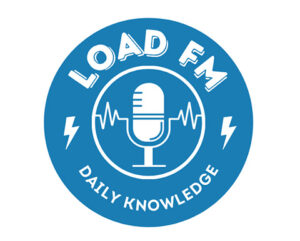If you want to learn German, there are many great resources that you can use. These resources include listening to music, using a dictionary, reading literature, and making flashcards. Using these resources will help you become a fluent speaker of German in a short period of time. You can also take advantage of online resources that are free of charge and are great for those who don’t want to spend a fortune on courses. In this article, I’ll share some of my favorite resources for learning German.
Listening to music
Using music to learn a new language is a great way to improve your language skills. Not only can you listen to your favorite songs, but you can also read the lyrics, which will help you remember new words. Make sure to write the lyrics in large font, with plenty of space between each word. This will help you hear the words without straining your eyes. You can also practice pronunciation by humming along.
Various types of music will help you learn the language more quickly. The best way to learn German is to listen to German pop and rock songs. You can choose songs that will help you learn new words faster. You can also use apps that allow you to listen to the lyrics while you study. Some apps include LingQ, which helps you understand the lyrics of songs more quickly. The music will also make the process more enjoyable.
For example, if you want to learn the language through music, you can listen to German cover versions of popular songs. This will allow you to learn the language’s unique rhythms and melodies, as well as its different styles. Many artists choose to cover their own songs in other languages, and this is a great way to listen to the songs you already know in a new language. This way, you’ll not only get the right pronunciation of the words, but also get an appreciation for the music and the culture of the country.
You can also choose to read the lyrics of a song while you listen to it. This will help you learn the words and phrases that you can’t yet understand. Moreover, you can practice your auditory skills by singing along with the song lyrics. You can even print out the English translation and try to put the words back together. This will help you understand the German words better. However, you should focus on the lyrics of songs that are difficult to understand.
Making flashcards
One way to learn German fast is by making your own flashcards. You can make paper cards or use an app to help you draw. You should spend more time on words that you do not know rather than those that you already know. Aside from making paper flashcards, you can use them to review the words that you have already learned. Listed below are some tips for making your own flashcards. And don’t forget to review the cards as often as possible!
Create a list of vocabulary words and phrases. You can use the app Quizlet to find vocabulary sets. You can even make your own flashcards with the help of other students. iStudious also integrates with Quizlet, which will allow you to import your content and create your own flashcards. The app allows you to make handwritten notes, too. And if you’re learning a new language, you can also use the iStudious app. You can make custom cards using a notebook.
You can create and store your own flashcards. This will make the process much faster and easier. In addition to making flashcards, you can make games. This way, you can make learning fun and effective. And since you’ll be able to see your progress at any time, you’ll be more motivated to continue learning the new language. You can also create your own online courses if you want. If you’re still unsure about how to make your own flashcards, you can find plenty of tips online.
While you’re making your flashcards, you can also use apps that can help you track your progress. For instance, you can use the Anki app. This free app can help you create and share flashcards, and it also has the ability to track your answers. If you’re a university student, you might want to consider purchasing an app that can help you create flashcards in a simple interface. If you want to use an app, you can import your existing flashcards from Quizlet or Course Hero.
Using dictionaries
Using dictionaries to learn German can be a great way to supplement your German learning. You should carefully choose a dictionary and take the time to read its introduction, as well as a few entries. You should also check for contemporary jargon and gender and plural forms. Look for a number of entries for proper nouns, as well as irregular verbs, and check the definitions for abbreviations and special lists of words.
One of the most effective methods is to use online dictionaries that include a dictionary. This way, you can consult the dictionaries at any time to look up a word. You can even use forums to ask questions and get help from native speakers. For example, the online dictionary LEO has an active forum section where you can discuss questions related to translations. The website may not be the most user-friendly, but it’s still a great resource for learning German.
In addition to online dictionaries, you can also download apps and use them on your PC or laptop. For best results, choose those that are optimized for language learning and have a free trial period. While online dictionaries are a great resource for beginners, there are a few options for more advanced learners. A good one will include a table of word combinations, as well as the most common adjectives and nouns. A good app will also include audio pronunciations and help you learn more words and phrases.
Lastly, bilingual dictionaries are an important resource for foreign language learners. In the foreign language classroom, bilingual dictionaries are often used to help students learn German by reducing the impact of “equivalency thinking,” which is a common misconception among language learners. This article explains how bilingual dictionaries can be used to wean students from this mindset while maintaining the linguistic awareness of the target language.
Reading German literature
One of the best ways to learn German is by reading classic literature in the language. There are many publishers who have made bilingual editions of classic works of literature. Many of these editions feature notes and explanations on the German pages. Reclam, a German publisher, has a series of these editions, which can be easily recognized by their orange covers. Another great way to get acquainted with the German language is by reading short stories in the language. Penguin Parallel Texts also publishes a bilingual edition of short works of contemporary German literature.
Regardless of your skill level, there is a book that will appeal to you. Children’s books are an excellent resource for learning spoken German. Children’s stories have a lot of vocabulary but are also beautiful and engaging. In addition, children’s books are a great way to practice your pronunciation, as they feature simple words to express complex ideas. You can also read modern German literature, such as Inspector Barlach mysteries, which are witty and suspenseful. For a more advanced level, consider reading some classic German children’s books. Try the Baumgartner & Momsen detective series, or the Cafe in Berlin collection.
A contemporary German novel, Tshick, is an excellent choice for beginning or intermediate German students. The adventures of two 14-year-old boys are the focus of this novel by Wolfgang Herrndorf, and it explores the trials of adolescence and the true meaning of friendship. It is also a good choice for intermediate learners who are familiar with some German slang. An English translation is also available, which is helpful for students who are new to the language.
Practicing with audiobooks
One of the most effective methods for learning a new language is to practice with audiobooks. These recordings have the added advantage of being highly enjoyable. The fact that you don’t have to look at the pages to learn the language makes them the perfect way to learn a new language. The content of audiobooks is also highly immersive, making it easier for you to remember what you’ve heard. There are many advantages to practicing with audiobooks to learn German.
You can buy audiobooks from a variety of sources, including Amazon Germany. They sell audiobooks on CD or download. You can even get free downloads for selected titles. Amazon also has a section dedicated to audiobooks called Audible. Audible is an outsourced audiobook service and stocks both abridged and full versions of books. You can even download audiobooks for free to try out the platform.
Audiobooks also help you practice with spoken German. Children’s stories are a great way to learn spoken German. You can even listen to German actors reading the stories. In addition to listening to audiobooks, you can also practice with German language books. You’ll be able to hear how people speak in everyday situations. The audiobooks are recorded in German, but the translators can provide the translations in English.
In addition to audiobooks, you can also download the GermanPod101 app. The app allows you to customize the audio lessons based on your level. You can even download these apps directly to your phone’s iTunes store. You can also download a GermanPod101 app directly from the iTunes store. This way, you don’t have to go through a complicated setup to start learning a new language. So, start practicing with audiobooks to learn German now!

